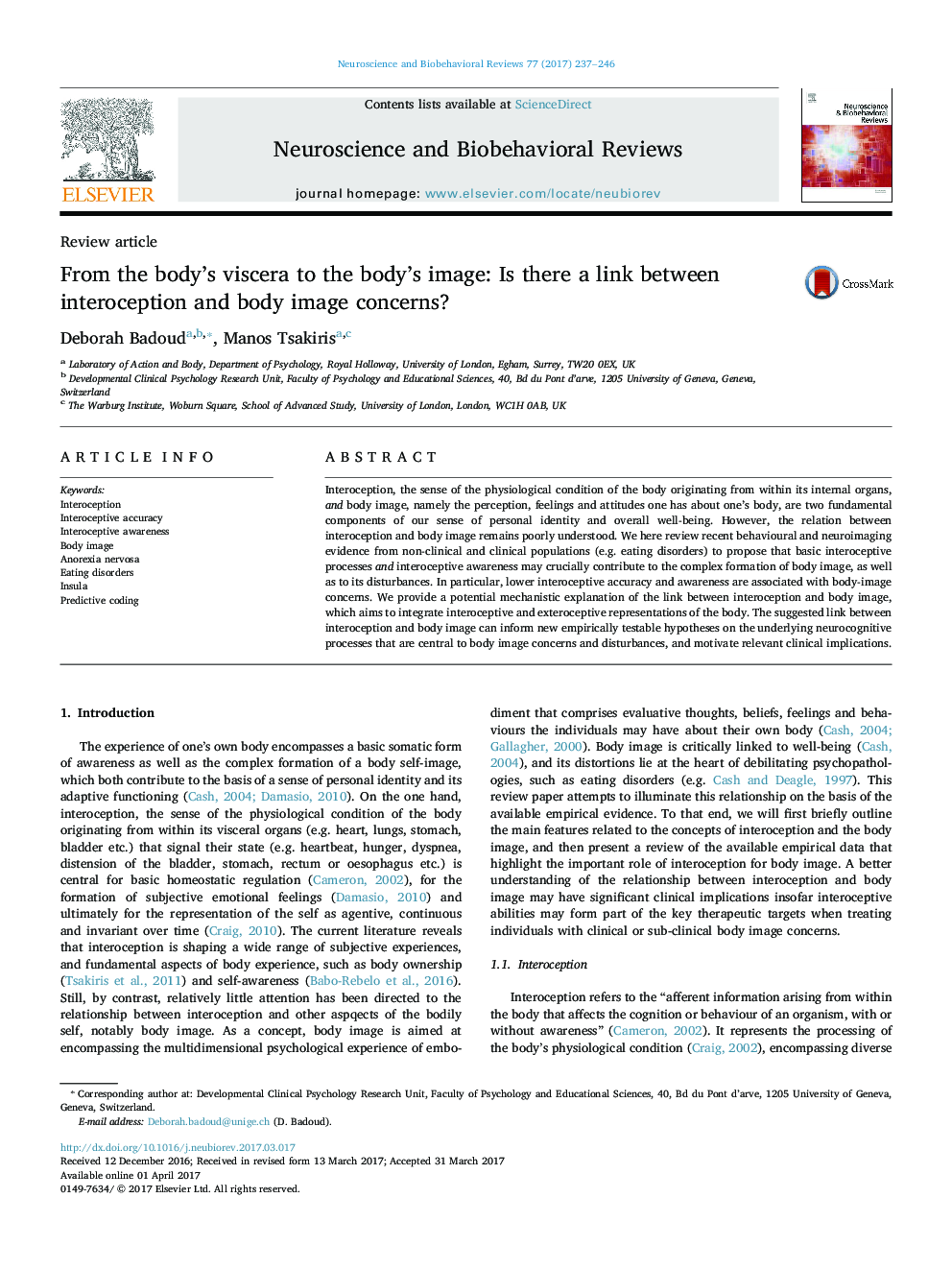| Article ID | Journal | Published Year | Pages | File Type |
|---|---|---|---|---|
| 5043568 | Neuroscience & Biobehavioral Reviews | 2017 | 10 Pages |
â¢Recent behavioural and neuroimaging data suggest a link between interoception and body-image.â¢Lower levels of interoceptive accuracy and interoceptive awareness may contribute to body-image concerns.â¢These data can be interpreted in a predictive coding model to understand how interoception might influence the formation of one's body image.
Interoception, the sense of the physiological condition of the body originating from within its internal organs, and body image, namely the perception, feelings and attitudes one has about one's body, are two fundamental components of our sense of personal identity and overall well-being. However, the relation between interoception and body image remains poorly understood. We here review recent behavioural and neuroimaging evidence from non-clinical and clinical populations (e.g. eating disorders) to propose that basic interoceptive processes and interoceptive awareness may crucially contribute to the complex formation of body image, as well as to its disturbances. In particular, lower interoceptive accuracy and awareness are associated with body-image concerns. We provide a potential mechanistic explanation of the link between interoception and body image, which aims to integrate interoceptive and exteroceptive representations of the body. The suggested link between interoception and body image can inform new empirically testable hypotheses on the underlying neurocognitive processes that are central to body image concerns and disturbances, and motivate relevant clinical implications.
